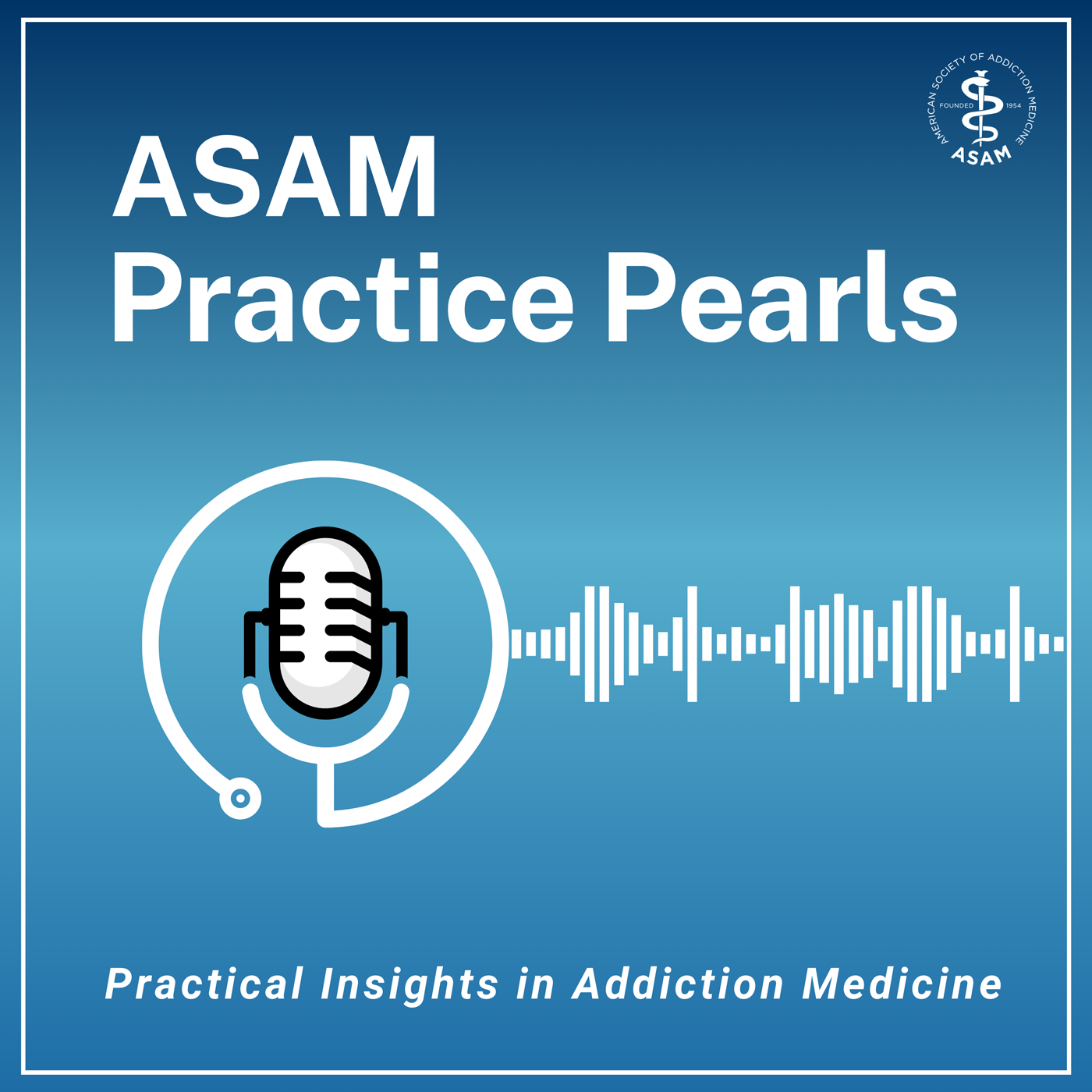
13.5K
Downloads
17
Episodes
Join ASAM Practice Pearls for in-depth discussions on addiction prevention, treatment, and recovery. Geared toward healthcare professionals and individuals seeking knowledge, this series explores the latest evidence-based approaches to addiction medicine. Listen to interviews with leading experts as they delve into critical topics and share practical tools you can use to improve patient care and promote public health.
Episodes
Thursday Jun 19, 2025
Sickle Cell Disease: Intersection of Pain and Addiction
Thursday Jun 19, 2025
Thursday Jun 19, 2025
In recognition of Sickle Cell Awareness Day (June 19), this episode of ASAM Practice Pearls features host Dr. Peter Selby and expert Dr. Andrew Smith as they explore the complex intersection of sickle cell disease (SCD), pain, and addiction. They discuss the challenges individuals with SCD face in accessing effective pain management, often compounded by stigma and opioid-related concerns. The episode provides insights into evidence-based treatments, the balance between pain relief and opioid dependence risks, and strategies for compassionate, patient-centered care.
Host
Peter Selby, MBBS, CCFP(AM), FCFP, FASAM
Dr. Peter Selby is a Senior Scientist and Senior Medical Consultant at the Centre for Addiction and Mental Health (CAMH) and Vice-Chair, Research, and Giblon Professor in Family Medicine at the University of Toronto. His research focuses on innovative methods to understand and treat addictive behaviors and their comorbidities. He utilizes technology to scale and test health interventions, with his cohort of over 400,000 treated smokers in Ontario serving as an example. Dr. Selby has received over $100 million in grant funding from CIHR, NIH, and the Ministry of Health and has published more than 200 peer-reviewed articles. His most recent research program utilizes a Learning Health Systems approach to investigate how technology-equitable, collaborative care can enhance the delivery of evidence-based interventions to the patient while providing a more satisfying care experience for patients and providers across systems.
Expert
Andrew J. Smith, MDCM
Dr. Andrew J. Smith is a Staff Physician, Pain and Addiction Medicine and Medical Lead of the Interprofessional Pain and Addiction Recovery Clinic at the Centre for Addiction and Mental Health in Toronto. He comes from McGill Medicine, University of Washington Neurology, and UCLA Medical Genetics, initially focusing on neurodevelopmental medicine. Frustrated by how many of his young patients with learning disabilities would fall into substance use problems despite early successes, he retooled in the field of addiction medicine. He became the first in Canada to do a combined clinical fellowship in pain and addictions at CAMH and Mount Sinai Hospital. He now leads an Interprofessional team dedicated to helping people with substance use disorders, severe mental health conditions, and chronic pain improve their pain, function, and quality of life. Dr. Smith is passionate about improving access to better care for patients with chronic pain and addiction, educating patients, families, and clinicians about pain and addiction, and reducing stigma. He is an executive and hub member of ECHO Ontario Chronic Pain — a telementoring resource for primary care clinicians to enhance their skills and confidence in managing more of their own patients who have complex pain and opioid issues.
📖 Show Segments
- 00:05 - Introduction
- 00:26 - Dr. Selby’s Journey into Pain Management and Addiction Medicine
- 02:32 - Understanding Pain in SCD
- 04:40 - A Holistic Approach to Pain Management
- 06:15 - Reducing Stigma and Taking a Non-Judgmental Approach
- 09:16 - Discussing Opioid Use with Patients
- 12:36 - Assessing Patients with SCD
- 13:11 - Diagnosing Use Disorders in Patients with SCD
- 15:33 - Preparing for Emergency Room Visits
- 17:10 - The Importance of Patient Autonomy
- 18:31 - A Patient Success Story
- 21:41 - Conclusion and Additional Learning Opportunities
📋 Key Takeaways
- “Pain is Pain is Pain”: There are different kinds of pain in SCD. People with SCD experience acute pain from vaso-occlusive crises, chronic pain, sensitization-related pain, and acute flare-ups that may not necessarily be vaso-occlusive.
- Dual Diagnosis Complexity: Individuals with SCD may have co-occurring pain and addiction. Effective treatment plans need to address both components without invalidating the patient's experience of pain.
- Build Rapport and Use a Holistic Approach: Establishing a trusting and safe environment is crucial. Practitioners should take a trauma-informed and motivational approach to reduce stigma and defensiveness, addressing not only the physical aspects of pain but also the psychological, social, and contextual factors.
- Patient Autonomy and Collaboration: Empower patients by involving them in the decision-making process and providing them with information and options to improve treatment adherence and outcomes.
- Use of Buprenorphine: Buprenorphine has been effective in treating chronic pain in patients with SCD and can be used in divided doses or as a single dose, providing a safer alternative to traditional opioids.
- Universal Precautions Approach: Screening for risk factors and potential opioid misuse should be part of the assessment process. Practitioners should normalize discussions about substance use and develop a non-judgmental dialogue.
- Emergency Department Challenges: Educate both patients and emergency department staff about managing pain in patients with opioid use disorder. Care passports can help guide treatment during episodes of pain crisis.
🔗 Resources
- ASAM’s Pain and Addiction Curriculum: Explore the different courses and resources ASAM offers for treating patients with pain and addiction.
- ASAM’s Motivational Interviewing Courses: Explore the different courses and resources ASAM offers to develop techniques and practice skills in motivational interviewing.
- Sickle Cell Disease Association of America (SCDAA): A national organization dedicated to advocating for individuals affected by SCD.
- I Believe in Therapy Toolkit by SCDAA: A resource that addresses the stigma surrounding mental health in the Black community and encourages seeking therapy and support.
- June 19th is World Sickle Cell Awareness Day - check for local events on the Sickle Cell Disease Association of America





